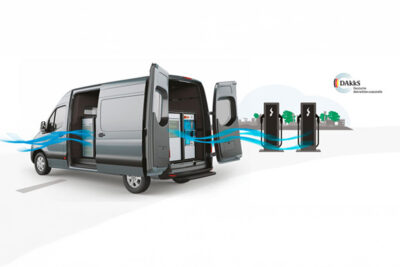Germany may abandon target for public infrastructure rollout
In a surprise move, the German government appears to have scrapped its target of establishing one million charging points by 2030, at least internally. News agencies quote insiders familiar with the matter, revealing that the goal is no longer being actively pursued within the government.
This, however, is for good reason in parts. Individuals privy to the plans told Bloomberg the significant growth of private charging infrastructure was the reason behind the change in strategy. According to the news agency, there are now approximately ten private charge points for every public one in Germany.
When approached for comment, the Federal Ministry for Economic Affairs did not directly address the one-million target and referred Bloomberg’s inquiry to the Ministry of Transport. A spokesperson from the liberal party FDP said that the goal still officially stands; there has been no further statement from the government regarding the reports.
According to Bloomberg, Germany has about 85,000 public charging stations, and nearly a fifth of those are classified as fast-charging points. Still, most drivers choose to charge at home, and German drivers are not alone. The shift highlights the challenge many European countries face when planning public infrastructure to encourage electric transport, writes Bloomberg.
Moreover, the one-million goal came after lobbying from the country’s car industry, according to two people familiar with the matter, which stands to benefit from a broader charging network. The target was further based on a 2020 study in which the number was one out of four scenarios assessed. When contacted by Bloomberg, Germany’s VDA car lobby also emphasized that other stakeholders helped calculate the number.
Critics had argued before that the target, established in the coalition agreement in 2021, fails to account for technological advancements, changing consumer preferences, and the risk of investing in underutilized public charging stations.
Among the opponents, the Federal Association of Energy and Water Industries (BDEW) found one million public charging points outdated in a statement issued in January 2023. The BDEW emphasized the importance of a realistic demand assessment and usage patterns. The BDEW further suggested that if the government wishes to support the expansion of fast-charging infrastructure, it should prioritize the timely mobilization of state-owned land and simplify the approval processes. The association also believes that the detailed planning of charging station expansion should not be a government responsibility.
“The target does not consider the enormous developments both on the vehicle side and on the charging station side, and is thus technologically outdated,” added Kerstin Andreae, chairwoman of energy lobby group BDEW who contributed to the study back then.
“As a whole, getting grid infrastructure in the ground and getting it signed off ahead of time can be quite difficult,” said Ryan Fisher, a charging infrastructure analyst at BNEF who estimates that Germany would need roughly 450,000 charging points by the end of the decade when speaking to Bloomberg. “If you end up with 1 million, you will end up with too many, but the number of fast chargers matters to determine how many you need overall.”
So market development and private and public charging must be carefully balanced, especially as the prices of electric vehicles decline and the proportion of EV owners without private charging options grows. Another study in 2020 concluded that Germany probably only needs between 440,000 to 843,000 public charging points and would only reach the upper end of that range if private uptake is slow.
“It’s important to review this goal again and again, especially in light of technical developments,” Stefan Gelbhaar, a spokesman for the Green parliamentary group’s transport policy, told Bloomberg.





0 Comments